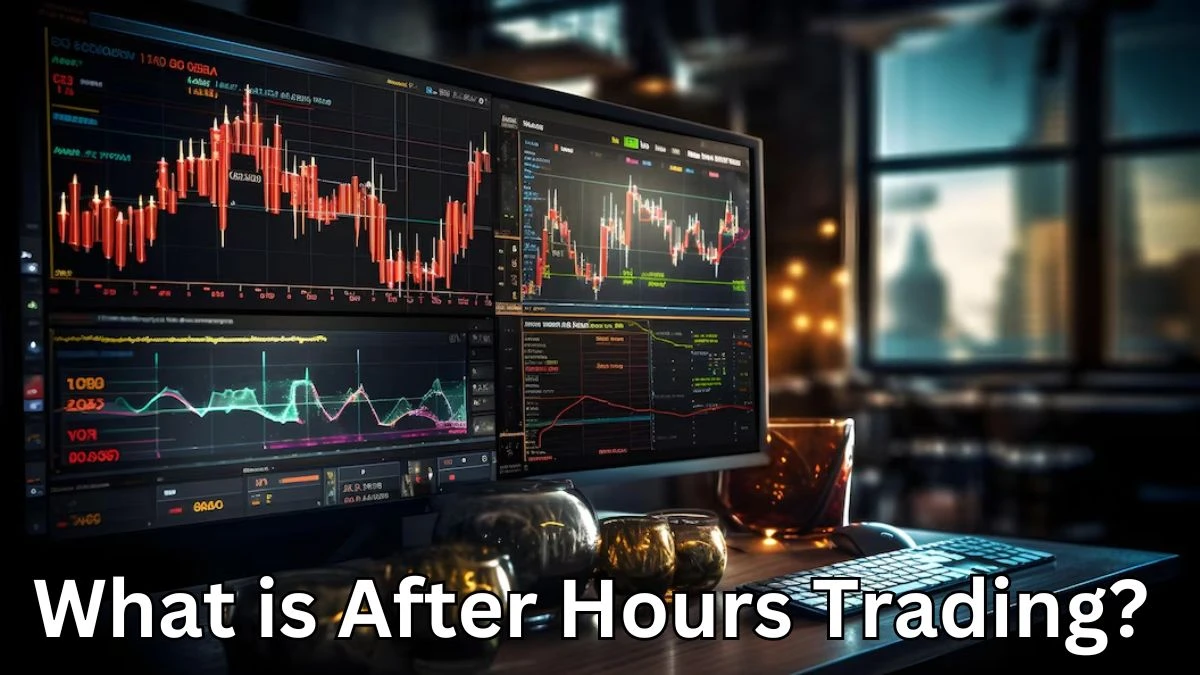
What is After Hours Trading? How Does it Work?
After-hours trading lets people buy and sell stocks outside regular market hours. It's now open to regular investors too, using special orders on broker platforms, but it's riskier with less trading.
by S Samayanka
Published Jun 08, 2024 | Updated Jun 08, 2024 | 📖 4 min read
What is After Hours Trading?
After-hours trading is when people buy and sell stocks outside the normal trading hours of the stock market. In India, this happens from 4:00 PM to 8:55 AM. In the U.S., it starts at 4:00 PM and can go until 8:00 PM.
Earlier, only wealthy individuals and big investors could trade after hours. Now, due to technology, regular investors can also trade during these times using special orders on broker platforms.
Trades during these hours are done through electronic networks, not the regular stock exchanges. This allows investors to react to news and events that happen after the market closes. However, there is usually less trading volume, which can make prices more volatile and harder to predict.
In short, after-hours trading gives more flexibility but comes with extra risks.
How Does After Hours Trading Work?
- You have the opportunity to purchase or sell stocks outside of regular market hours through after-hours trading.
- ECNs make after-hours trading more accessible to a wider range of investors, including individual traders.
- Investors use after-hours trading to act quickly on news or events that happen when the market is closed.
- Initially, after-hours trading was mainly for rich and big investors, but now individuals can join in too.
- After-hours trading happens outside the standard trading hours of major stock exchanges like the NSE & BSE.
- It usually occurs until about 8 pm, but the exact times can vary depending on the ECN or financial institution.
- During after-hours trading, buy and sell orders are matched automatically by electronic markets. If they can't match, the trade doesn't happen.
- Quotes provided are only from the electronic market used, although investors might have access to other participating ECNs.
Does After Hours Trading Affect Stock Price?
Yes, after-hours trading can affect stock prices. When companies release important news after regular trading hours, like good earnings, their stock prices might go up or down in after-hours trading. For example, if a company reports strong earnings after the market closes, its stock price might go up when people trade after hours.
However, whether these changes in price continue into the next regular trading session depends on how investors feel and other market factors. So, yes, after-hours trading can make stock prices change, but that doesn't always mean they'll stay that way when the market opens again.
What are the Stock Trading Sessions?
Shares can be traded in three different markets from Monday to Friday. Pre-market and after-hours trading operate in a similar way to the standard market. Individuals purchase and trade stocks at a mutually agreed upon price.
Therefore, if you decide to sell at these times, you will receive the price that someone is willing to pay during pre-market or after-hours trading.
|
Market |
Time (ET) |
|
Pre-market |
4:00 a.m.–9:30 a.m. |
|
Regular market |
9:30 a.m.–4:00 p.m. |
|
After-hours market |
4:00 p.m.–8:00 p.m. |
What are the Factors to be Considered when Trading After Hours?
When trading after hours, consider these factors:
Volume:
At first, trading may be busy due to news, but it often slows down, making stocks less easy to buy or sell.
Price:
Prices can be different than during regular hours, and the gap between buying and selling prices (spread) can be wider.
Participation:
Fewer people trade after hours, which can make it riskier. Some investors avoid it because there are fewer buyers and sellers.
Price Action:
Stocks might move a lot after hours, but this can change when regular trading starts again.
Impact:
It's easier to affect prices after hours because there are fewer trades happening.
Order Types:
Use limit orders to protect yourself from sudden price changes. These orders set a specific price for buying or selling.
What are the Pros and Cons of After Hours Trading?
Pros:
- React Fast: You can quickly change your investments when new information comes in.
- Convenience: You can trade outside of regular hours, which is handy if you're busy during the day.
- Make Money: Sometimes, news can make stock prices change, and trading after hours lets you take advantage of that.
Cons:
- Less People Trading: There are fewer buyers and sellers, so it can be harder to buy or sell at the price you want.
- Wider Prices: The gap between what people want to buy and sell for can be bigger, which might cost you more money.
- Risky Prices: Prices can jump around a lot more, making it riskier to trade.
- Tough Competition: Large investors may have an advantage due to their access to more information and resources, making it difficult for ordinary people to compete.
What is After Hours Trading? - FAQs
1. What is after-hours trading?
After-hours trading is buying and selling stocks outside of normal market hours.
2. How does after-hours trading work?
It lets you trade stocks outside of regular hours using electronic networks.
3. Does after-hours trading affect stock prices?
Yes, it can. Important news after hours can change stock prices.
4. When can I trade during after-hours?
After-hours trading typically occurs from 4:00 PM to 8:00 PM, but exact times may vary depending on the electronic trading network or institution.




